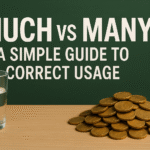Allude vs Elude: How to Use These Words Correctly
English includes many pairs of words that trip people up. Among them, allude vs elude stands out. One whispers a hint; the other makes a clean getaway. This guide explores the difference between allude and elude, definitions, usage, examples, and memory tips—so you never mix them up again. Meaning of Allude and Elude Let’s start […]
Read More »









